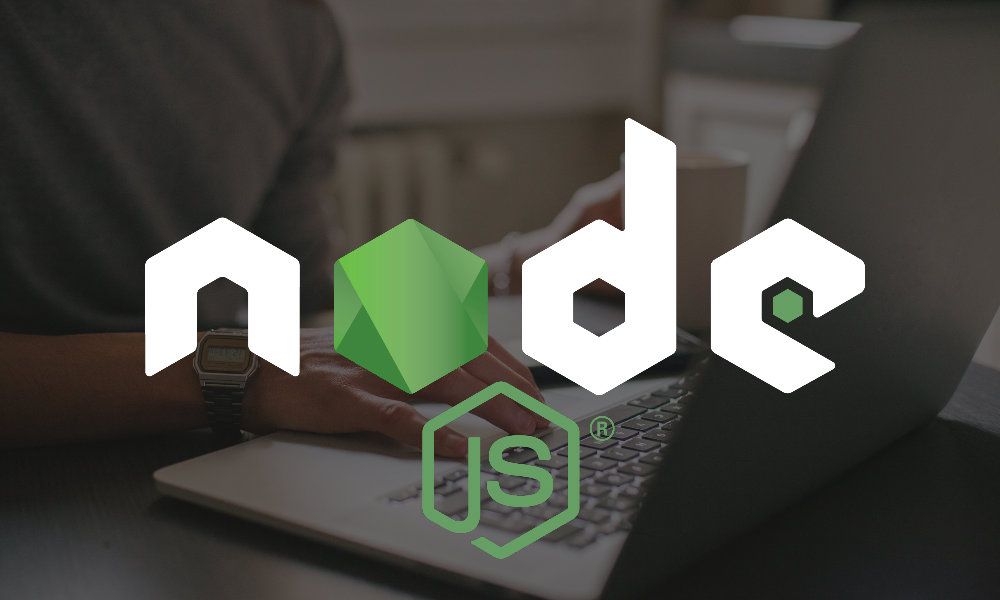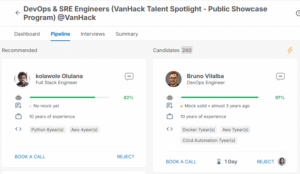Getting ready for a Node.js job interview or searching for the right Node.js developer? Understanding the typical Node.js interview questions and answers can make a huge difference. Understanding the fundamentals, such as Node.js modules, the event loop, and asynchronous operations, provides both candidates and hiring teams with the confidence they need.
Node.js, with its single-threaded event loop and event-driven nature, is a key technology for creating scalable applications. Having a strong knowledge of how Node.js performs and its modules is vital in today’s job market. This knowledge is valuable whether you’re the one applying or the one interviewing.
Familiarity with common Node.js interview questions helps everyone prepare better and makes the process smoother. Whether it’s about handling callbacks, concurrency, or the Node.js process, knowing what to expect matters. Read on to get ready for your next Node.js interview.
Key Interview Questions Every Node.js Developer Should Expect

Preparing for a Node.js interview means getting comfortable with how Node.js works under the hood and how to build scalable web applications. This list of Node.js interview questions covers asynchronous programming, how the single-threaded model executes JavaScript code, and common Node modules. Thinking through these will help you prepare for an upcoming interview or sharpen your experience in Node.js.
1. What is Node.js, and how does it work as a JavaScript runtime?
Think about how Node.js uses the V8 JavaScript engine from Google Chrome to run JavaScript code on the server side.
2. How does Node.js use a single thread to handle multiple operations without blocking?
Consider how the event loop and thread pool work together to run asynchronous tasks efficiently.
3. What is a callback function, and how does it help in asynchronous programming?
Reflect on how callbacks allow a Node.js application to continue running without waiting for slow operations like file system or HTTP requests.
4. What causes callback hell, and how can it be avoided?
Think about deeply nested callbacks and how tools like Promises or async/await simplify asynchronous code.
5. What role does npm play in managing Node.js modules?
npm is the Node package manager that helps install and manage dependencies listed in package.json.
6. How do Node.js modules help organize JavaScript code in a Node application?
Modules enable you to split your code into reusable pieces, making it easier to build and maintain scalable applications.
7. What is the event loop, and how does it manage the queue of asynchronous tasks?
The event loop lets Node.js process callbacks and other asynchronous operations on a single thread without blocking.
8. How does the setImmediate() function work in Node.js?
It schedules a callback to execute right after the recent poll phase of the event loop, helping control task timing.
9. What is a cluster, and how does it help a Node.js server handle multiple processes?
Clusters let you create multiple Node.js worker processes to fully use CPU cores for better performance.
10. How do child processes work in Node.js?
Child processes let you execute separate operating system commands or scripts without blocking the main thread.
11. What is the role of the EventEmitter class in Node.js?
EventEmitter allows a Node.js application to handle and emit events, supporting an event-driven programming style.
12. How does Node.js handle streams, and why are they useful?
Streams process data piece-by-piece rather than all at once, which is great for handling large files or continuous data like HTTP requests.
13. How does Node.js interact with the file system module?
File system operations are asynchronous by default, helping avoid blocking while reading or writing files.
14. What’s the difference between synchronous and asynchronous functions in Node.js?
Synchronous functions block the single thread until complete; asynchronous ones allow other tasks to run while waiting.
15. What is the Read-Eval-Print-Loop (REPL) in Node.js?
REPL is the command-line interface that lets you write and execute JavaScript code interactively in Node.js.
16. How does Node.js use the thread pool alongside its single-threaded event loop?
The thread pool handles heavy tasks like file system access or cryptography without blocking the main thread.
17. What security risks come with using eval in Node.js?
Eval runs JavaScript code represented as a string, but it can lead to serious vulnerabilities if misused.
18. How does Node.js handle HTTP requests in a web application?
Node.js processes incoming HTTP requests asynchronously using event-driven callbacks to handle many users efficiently.
19. What is package.json, and why is it important?
It defines the project’s metadata, dependencies, scripts, and configuration for npm and your Node application.
20. How can you avoid blocking the single thread in a Node.js application?
By using asynchronous operations and avoiding long-running synchronous code that would block the event loop.
21. What modules are commonly used in Node.js?
Modules like http, fs (file system), events (EventEmitter), and path are core to building Node.js applications.
22. How can clusters and multiple Node.js worker processes improve scalability?
By spreading workload across multiple processes, clusters let a Node.js server handle more connections efficiently.
23. What does it mean that Node.js is event-driven?
Node.js reacts to events like incoming requests or timers, executing callbacks only when those events occur.
24. How would you describe the difference between Node.js as a programming language and a JavaScript runtime?
Node.js is a runtime environment that lets JavaScript run on the server, rather than being a language itself.
25. How do you debug a Node.js application?
Use the built-in command line interface tools or external debuggers to inspect JavaScript code execution and track errors.
26. What experience in Node.js modules and npm should a developer have?
Understanding how to install, update, and use third-party modules from npm and create custom modules is essential.
27. How do asynchronous operations improve the performance of a Node.js web application?
By executing tasks like database queries or file reads without blocking, the app can handle many users smoothly.
28. What is the role of the operating system in Node.js asynchronous behavior?
Node.js delegates some tasks to the OS (like file I/O) via the thread pool to avoid blocking the single thread.
29. How does Node.js’s single-threaded event loop differ from multi-threaded programming?
It uses one thread with an event queue, rather than multiple threads, to manage concurrency efficiently.
30. What should you focus on when preparing for a Nodejs interview?
Understand asynchronous programming, modules, event loop, npm, clustering, and how Node.js builds scalable web applications.
How to Approach Node.js Interview Questions and Answers Effectively

Preparing for an interview isn’t just about memorizing answers—it’s about really understanding how things work and being able to explain them clearly. Node.js is a server-side technology that runs JavaScript using a single-threaded event loop, which lets it handle lots of tasks without slowing down. If you can explain this well and tie it to your own experience, you’ll come across as confident and knowledgeable.
Get Comfortable with the Single-Threaded Event Loop
This is the heart of how Node.js works, so make sure you can talk through how it handles tasks one at a time but still manages to do a lot without getting stuck.
- Describe how the event loop processes asynchronous tasks.
- Explain why single-threaded doesn’t mean limited or slow.
- Show how this design helps build apps that scale well.
Know What the Read Eval Print Loop (REPL) Is
REPL is a handy tool that lets you try out JavaScript code right in the terminal, which is great for quick testing and debugging.
- Explain what REPL does and how you can use it.
- Share times when REPL helped you figure something out fast.
- Mention why it’s useful for experimenting with code during development.
Be Ready to Talk About Node.js as Server-Side Tech
It’s important to show that Node.js runs JavaScript on the server, not the browser, which changes how it’s used and what it can do.
- Talk about what it means for Node.js to be server-side.
- Compare it briefly to running JavaScript in the browser.
- Explain why this makes Node.js great for handling web apps and APIs.
Practice How You Explain and Give Examples
Knowing your stuff is one thing—being able to clearly explain it and back it up with real examples really sets you apart.
- Practice saying key concepts out loud before the interview.
- Think of examples from your own projects that show your understanding.
- Be ready to speak about how you’ve performed with async code and the Node.js tools you’ve used to manage it.
Exploring Advanced Node JS Interview Questions for Experienced Developers

When interviewing for a senior Node.js position, you should be ready for questions that cover more advanced topics beyond the basics. These often focus on how you handle real-world challenges like performance under load, managing complex async code, and keeping your app stable and secure. Demonstrating your ability to handle these issues in production really sets you apart.
1. How do you find and fix performance bottlenecks in a Node.js app?
Talk about the tools you used to detect slow parts, like profiling and watching the event loop. Discuss how you search for CPU usage or heavy dependencies that might be causing issues.
2. What’s your approach to tracking down memory leaks?
Think about checking for event listeners that aren’t removed, digging into heap snapshots, and tracking objects that linger around longer than they should.
3. How do you set up and manage clustering for busy Node.js servers?
Explain how you handle spinning up worker processes, balancing the load between them, and dealing with crashes or restarts smoothly.
4. When would you pick worker threads instead of clusters?
Share your thoughts on when parallel threads make more sense—especially for CPU-heavy tasks—versus running multiple processes.
5. How do you roll out updates without downtime?
Mention strategies like rolling updates, coordinating with load balancers, and guaranteeing workers complete their current jobs before shutting down.
6. How do you debug tricky async bugs or race conditions?
Speak about using tools like async_hooks, tracing where callbacks stack up, and concentrating on unmanaged Promise rejections.
7. What do you do about event emitter leaks in a big Node.js app?
Explain how you observe listener counts, clean up unused listeners, and avoid accidentally registering too many global events.
8. How do you build efficient data pipelines with streams?
Talk about how you connect streams, handle backpressure, and build custom transform streams to keep data flowing smoothly.
9. How do you secure a Node.js app beyond just checking user input?
Bring up things like scanning for vulnerable dependencies, managing secrets safely, adding security headers, and watching for suspicious behavior at runtime.
10. What tools or methods do you use to keep an eye on app health in production?
Share your experience with APM tools, centralized logging, custom metrics, and setting alerts for event loop delays or memory spikes.
11. What problems can blocking the event loop cause, and how do you spot them?
Describe how blocking slows down everything and how you find blocking code using event loop monitoring or profiling.
12. How do you manage configuration and secrets across different environments?
Talk about using environment variables, secret vaults, and keeping config separate from your codebase.
13. How do you implement rate limiting or throttling to protect your app?
Talk about using middleware tools to handle traffic, setting up techniques for distributed rate limiting, and taking measures to protect your app from denial-of-service attacks.
14. What’s your process for graceful shutdowns?
Explain how you close database connections, let ongoing requests finish, and coordinate shutdowns across clustered workers.
15. What’s your approach to keeping npm dependencies secure and stable?
Make sure to use lockfiles to keep your dependencies consistent, stay on top of updates, regularly audit your packages for problems, and consider using private registries when needed for added safety.
Final Thoughts
Preparing for a Node.js interview makes both developers and hiring teams more confident. Being proficient in he basics like the event loop, async code, and Node.js modules helps smooth the entire process.
Whether you’re applying or facilitating the hiring, understanding these topics really pays off. Node.js’s single-threaded, event-driven setup is what makes it great for building apps that scale well.
Seeing how top companies ask about Node.js can give you a real advantage. In the end, being familiar with these questions makes the interview smoother and helps everyone find the right fit.
Frequently Asked Questions
What are the most common Node.js job interview questions developers should expect?
When it comes to Node.js interviews, most questions focus on the basics and practical skills you’ll actually use day to day.
Understand asynchronous operations: You’ll probably need to talk about how callbacks, promises, and the event loop help everything run without slowing down.
Know core modules and tools: Be ready to talk about working with streams, the file system, npm, and how package.json helps manage dependencies.
Demonstrate server-side JavaScript knowledge: It helps to understand how Node.js uses the V8 engine and handles HTTP requests efficiently.
Prepare for architecture topics: Since Node.js uses a single-threaded event loop to process tasks, expect questions about clustering, child processes, and how to build apps that scale.
How can developers best prepare for Node.js interview questions and answers?
The best way to get ready is by building stuff and understanding how Node.js really works behind the scenes.
Practice asynchronous coding: Get comfortable writing callbacks, promises, and async/await so your code doesn’t block.
Explore core modules used in Node.js: Spend time with EventEmitter, streams, and the file system module—they come up a lot.
Manage dependencies well: Know how npm works and how package.json keeps your project organized.
Review advanced topics: Don’t forget callback hell, clustering, child processes, and how the event loop actually runs.
What topics are covered in advanced Node.js interview questions?
Advanced questions dig into how you keep Node.js apps fast, reliable, and secure at scale.
Performance tuning: You might be asked about tools you use to profile your app or find memory leaks.
Concurrency and scaling: Be ready to talk about clustering, worker threads, and squeezing the most from your CPU.
Security best practices: Topics like auditing dependencies and managing secrets safely are important.
Deployment and maintenance: Expect questions on zero-downtime deploys, graceful shutdowns, and monitoring.
Event loop details: Knowing the differences between process.nextTick(), setImmediate(), and setTimeout() can really set you apart.
Why are Node.js interview questions important for hiring managers?
These questions help managers figure out if you really know how Node.js works and if you can build apps that hold up in the real world.
Evaluate asynchronous knowledge: They want to see that you’re comfortable writing non-blocking code that scales well.
Gauge understanding of architecture: Knowing about the event loop, clustering, and child processes shows you get what’s under the hood.
Assess problem-solving skills: Interviewers want to know how you troubleshoot issues like slow performance or memory leaks.
Check ecosystem familiarity: Being comfortable with npm, core modules, and security practices means you can maintain healthy projects.
How do Node.js interview questions assess a developer’s understanding of asynchronous operations?
Async programming is a big deal in Node.js, so expect lots of questions on this.
Test knowledge of callbacks, promises, and async/await: These are the building blocks for async code in Node.
Explore how the event loop and task queue work: Showing you get how tasks get queued and run proves you understand Node’s concurrency.
Assess ability to avoid callback hell: Writing clean async code with modern patterns really stands out.
Check error handling skills in async code: Managing errors properly is key to building solid apps.



